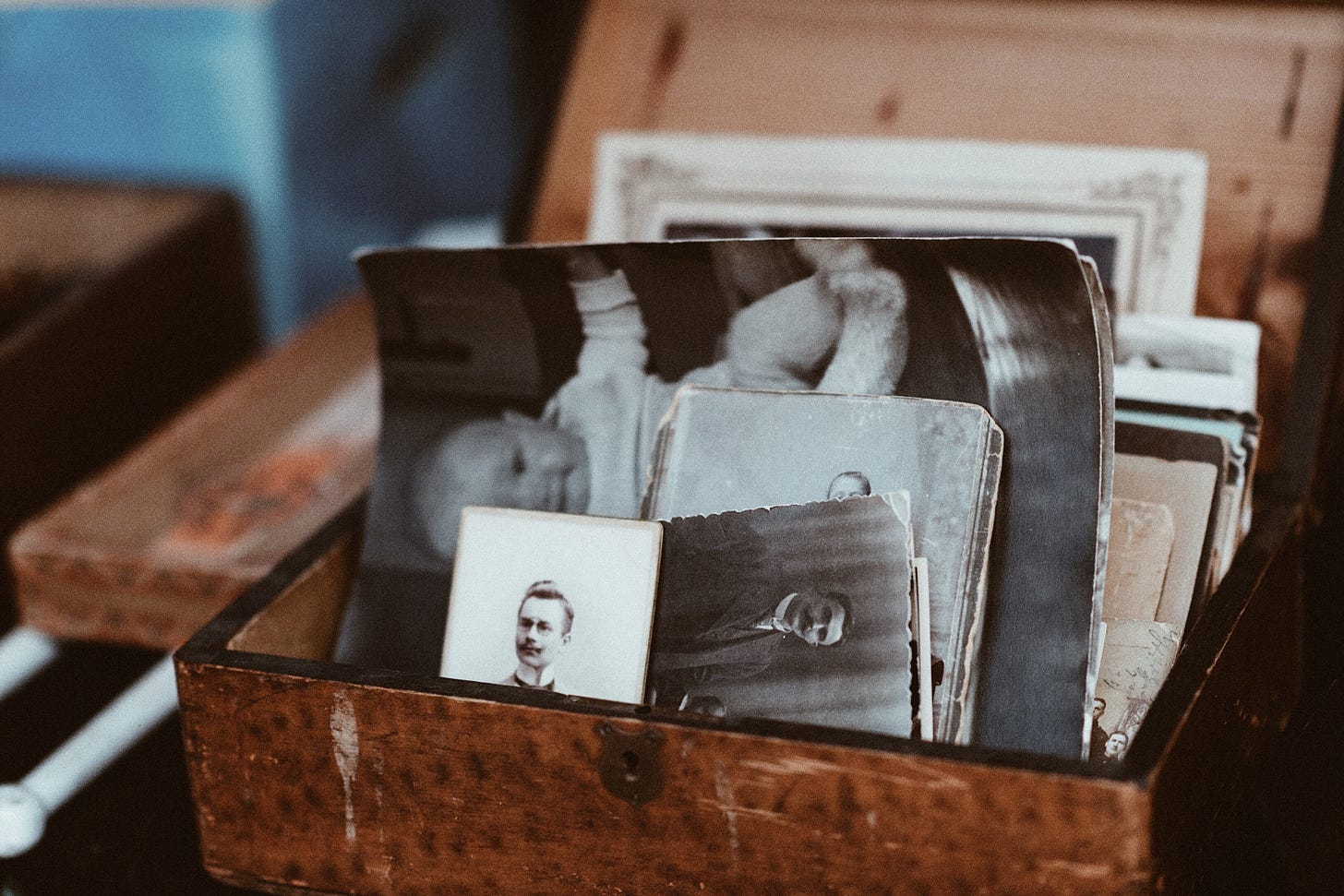Trick-or-Legacy
This year, I will be giving out Halloween candy for the first time in my adult life. I’m not quite sure how I got this far without partaking in this time honored American tradition but, hineni, here I am.
A couple days ago while out running an errand, I noticed a lot of Día de los Muertos, Day of the Dead, themed decorations alongside the classic orange and black Halloween trappings. Aside from this feeling a bit like an appropriated tradition, Halloween is about warding off spirits while Día de los Muertos is about welcoming them. The holidays are separate but over time they’ve gotten blended in our country.
The Day of the Dead has roots with the indigenous tribes of the Aztec, the Nuhau, and the Toltec. Halloween traces back to the Gaelic festival of Samhain and is connected with All Saints Day and All Souls Day via the Christian faith. These holidays share the theme of recognizing those who came before us - essentially a season for remembering the departed.

Growing up, my family gave out candy to anyone who came knocking but we didn’t dress up and go out trick-or-treating. The reason told to us pouting and grumpy kids was that it isn’t a Jewish holiday and, even though American culture has transformed Halloween, it has roots in other religions. (Mom, before you call me up and question my dedication of today’s post to Halloween, there’s a pretty cool Jewish link this year.)
The Torah reading for this week is Chayei Sarah, the life of Sarah, and, ironically, it begins with Sarah’s death at 127 years old. The rest of the reading is made up of stories about how Abraham buried Sarah, Isaac’s marriage to Rebecca, and closes with Abraham’s death. We do not encounter a living Sarah.
At first, I thought I’d write about the fact that Sarah’s death is the the first time a burial is mentioned in the Torah (which is really interesting and probably something to come back to down the road), but the coincidence of reading Chayei Sarah this week, as many parts of the world are gathering to pay homage to those who came before, was too good to pass up.
You might be asking “why is the portion called ‘the life of Sarah’ when it isn’t about her life but rather her death”? One possibility is that our legacy can stretch far beyond our physical time on earth. These chapters explore Sarah’s legacy through the values she instilled in her family and how her family continues to grow. We live on through our contributions and the lives we help shape. It is up to the living to raise up the legacies of those who came before us, and the Torah highlights this through the name of this week’s reading.

Judaism places great emphasis on remembering and honoring those who are no longer living. It is woven into Jewish life through prayers naming our biblical ancestors, through lighting yearly yahrzeit candles to remember our loved ones, and is an intentional part of four major holidays through the Yizkor, remembrance, prayer.
Even though this isn’t specifically a Jewish season for remembering those who are no longer with us, I’m thinking about how people across the world are connected by these memories and how neat that there’s a very Jewish reminder this week coinciding with other holidays on the calendar.
And if you find yourself in northern NJ this weekend, drop me a line, we have candy to share.
Shabbat Shalom!
GATHER
Lifnei, a new project of Kavod v'Nichum, is designed for those who are providing long-term care to older loved ones facing mortality. Join us in a community for support and reflection. Guided by Rabbi Chaya Gusfield, a group of five individuals will meet together for reflection on Jewish texts, sharing, and writing prompts. If you are interested, please let us know by completing this form.
November 10th - December 8th, 2021 (No session Thanksgiving week)
Wednesdays 12pm ET, 9am PT for 2 hours each session
$150 p/p for four sessions




